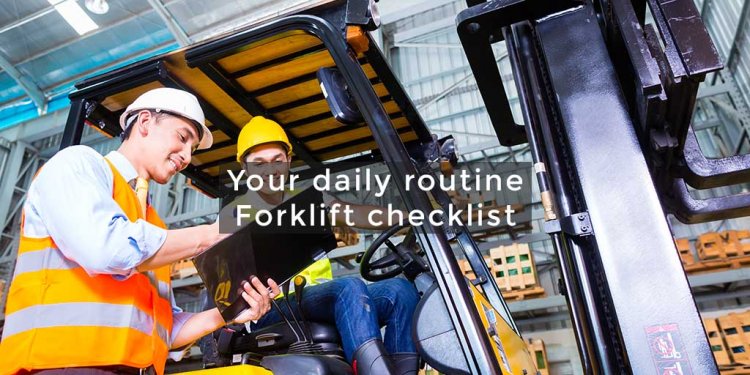
Forklift Truck Checklist
What does OSHA require regarding forklift checklists?
The Occupational Safety and Health Administration (OSHA) requires that all forklift operator training programs include instruction explaining how operators are to “examine” forklift trucks before placing them in operation. Standard 1910.178(l)(3) reads:
“Training program content. Powered industrial truck operators shall receive initial training in the following topics, except in topics which the employer can demonstrate are not applicable to safe operation of the truck in the employer’s workplace...Any vehicle inspection and maintenance that the operator will be required to perform; 1910.178(l)(3)(i)(J).”Despite this requirement, A very high percentage of forklift users are not aware that they are violating an OSHA mandate if they fail to perform these inspections. This examination requirement is found in OSHA’s rules for Powered Industrial Trucks, 1910.178.
The specific requirement is found in OSHA Reg: 1910.178(q)(7) and reads,
“Industrial trucks shall be examined before being placed in service, and shall not be placed in service if the examination shows any condition adversely affecting the safety of the vehicle. Such examination shall be made at least daily. Where industrial trucks are used on a round-the-clock basis, they shall be examined after each shift. Defects when found shall be immediately reported and corrected.”Exactly what components of their forklift trucks are customers supposed to tell their operators to examine?
This seems clear enough to those of us in the forklift business, but how clear is this to the average, possibly non-technically inclined, customer? If customers seek clarification in the OSHA regulations, they may find that this resource is not much help. There is NO specific regulation of what must be checked, just that a preshift checklist be done. The closest the OSHA regulations come to clarifying exactly what the operator is examining for in 1910.178(q)(7) is found in the first sentence of 1910.178(q)(10),
“Industrial trucks shall be kept in a clean condition, free of lint, excess oil, and grease. Noncombustible agents should be used for cleaning trucks.”
















